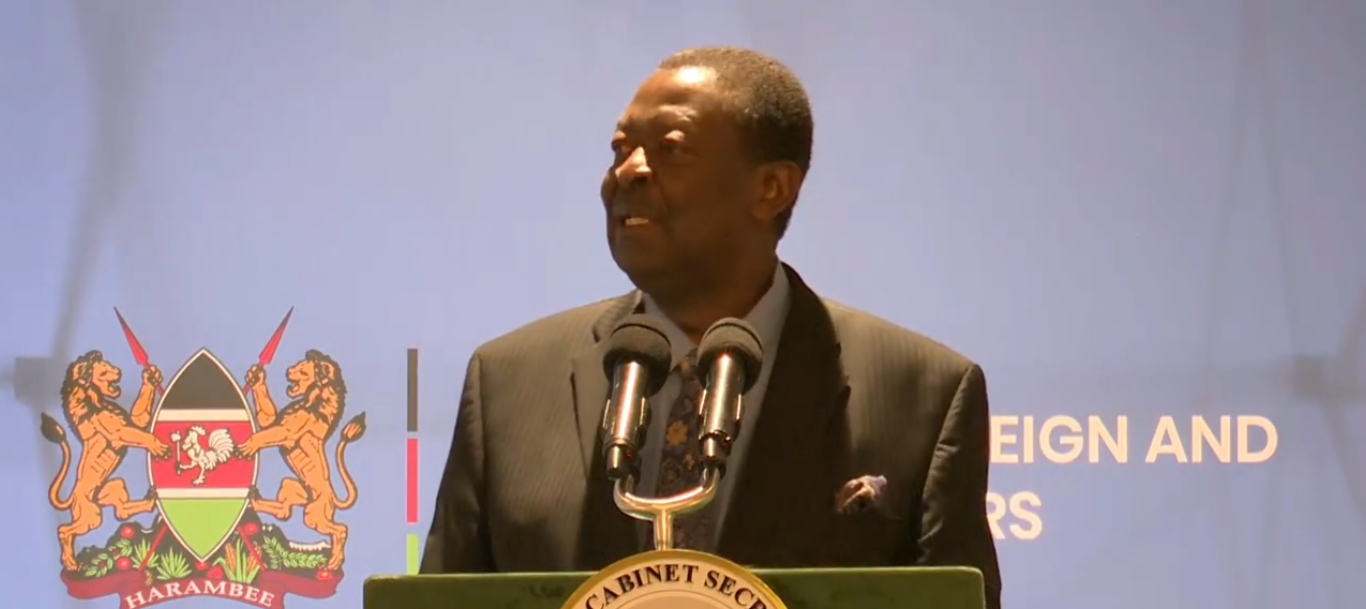
 Prime CS Musalia Mudavadi/ SCREENGRAB
Prime CS Musalia Mudavadi/ SCREENGRABPrime Cabinet Secretary Musalia Mudavadi has refuted claims that a parallel government was formed when Sudan’s paramilitary Rapid Support Forces (RSF) and its allies signed a pact at Kenyatta International Convention Centre (KICC), Nairobi in February.
Speaking during a quarterly diplomatic meeting in Nairobi on Tuesday, the Prime CS dismissed reports that the meeting led to a declaration and formation of a shadow government in the war-torn nation of Sudan.
Mudavadi maintained that the conference was meant to offer a path to the Sudanese parties on their right to self-determination emphasising that there was a need to scrutinise the signed charter to avoid misinformation.
“For the avoidance of doubt, no government of Sudan was declared or formed in Kenya, in Nairobi. I want that to be understood very clearly because there has been some misinformation that a parallel government of Sudan has been formed in Kenya. That is not true,” Mudavadi stated.
“We have had a chance to look at the documentation and there is no such wording of a government being formed in Kenya.”
He noted that there was need for the contexts of self-determination and fighting for independence to be distinguished and not be misconstrued so as Kenya does not appear as if it was facilitating a separatist state.
Mudavadi reiterated calls for a peaceful and united Sudan, affirming that Kenya remained committed to facilitating mediation efforts between the two factions.
A number of countries, including the United States of America, Egypt and Saudi Arabia, expressed concerns over attempts to form a parallel government.
The decision by Kenya to accept hosting the RSF further escalated tensions with Nairobi, which led to Sudan to recall its ambassador Kamal Jabara, in protest.
The signing of the agreement, which was a culmination of intense four-day negotiations by stakeholders, led to the establishment of an outfit dubbed the Sudan Founding Alliance.
Over 20 political parties across Sudan, 10 civil organisations, and five military groups led by RSF were among other lobby groups that were the signatories of the charter.
The charter called for "a secular, democratic, decentralised state based on freedom, equality, and justice, without bias toward any cultural, ethnic, religious, or regional identity".
It also outlined plans for a "new, unified, professional, national army" with a new military doctrine that "reflects the diversity and plurality characterising the Sudanese state".
The agreement resolved that a new army should be established, which featured all parts of Sudan and desist from political interference.












